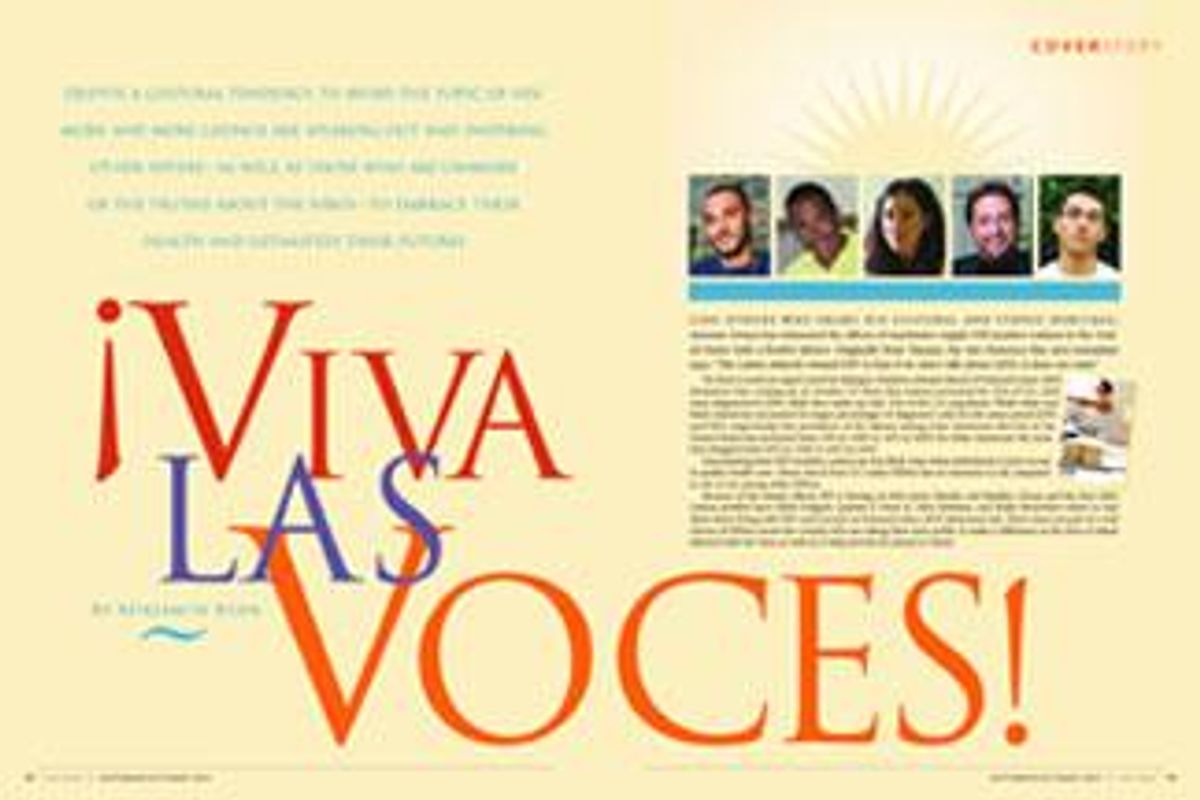
In a world that strains to be politically correct, it might seem there is no reason for National Latino AIDS Awareness Day--that people who live with the same virus would all face similar difficulties.
August 24 2007 12:00 AM EST
By continuing to use our site, you agree to our Privacy Policy and Terms of Use.

In a world that strains to be politically correct, it might seem there is no reason for National Latino AIDS Awareness Day--that people who live with the same virus would all face similar difficulties.
In a world that strains to be politically correct, it might seem there is no reason for National Latino AIDS Awareness Day--that people who live with the same virus would all face similar difficulties. But our world isn't perfect, says Bebe Anderson, HIV Project director with the advocacy group Lambda Legal. The stigma of HIV is made only worse for people already discriminated against because of their ethnic or racial background. 'It's another barrier that divides people,' she says, 'and another set of accompanying adverse reactions inflicted by society.' The U.S. immigration system--a very tangible concern for many Latino families--is a long, difficult maze to maneuver, and when HIV is a factor, it is nearly impossible. Since 1987 the United States has maintained a general ban on HIV-positive immigrants, keeping those outside the country from entering and barring those already here from becoming citizens. Of the calls Anderson's office receives for HIV-related legal assistance, the top issue for Latinos is immigration. But 1987 was a different time, Anderson points out. With what has been learned about HIV since then, she explains, these laws don't make sense. 'I think the ban is based in part on fears of how transmissible HIV is, but it's not as transmissible as people once thought. Policy hasn't caught up with science.' But sometimes the issue hits closer to home. Sex is a taboo topic in Latino families, explains Francisco Due'as, Lambda Legal's Latino Outreach Project director. 'There is a tradition against talking about sex in health or clinical terms,' he says. 'Some of the consequences of sex are not as honestly dealt with.' Because of this lack of communication about the real-world implications of sex, many cases of HIV aren't identified until opportunistic infections have taken hold. This isn't just a communication issue, though; it's related to immigration and available medical services. 'If you're a new immigrant,' Due'as says, 'you're here undocumented and don't have health insurance. So you don't seek out community groups or agencies and preventive or testing services that might be able to help you.' Research has shown that although Latinos, of all ethnic groups, report the highest percentage of having been tested for HIV, they also report the highest incidence of having left a doctor's office without fully understanding what was discussed--usually because of language barriers but also because U.S. medical care (particularly for people without insurance) can be an impersonal, rushed, and confusing process. Due'as says he can relate personally to this problem: 'Growing up as the principal translator for my parents since I was 6, I can definitely see that language is an obstacle. If you don't have a 6-year-old in your family fluent in both languages, a lot gets lost in translation about what is expected on both sides, from patients and from doctors.' Racism, immigration, education, support, language--they are all ultimately issues of communication. Everyone, Anderson says, must realize that silence will not make HIV go away. You have to talk about it, do something about it. To address this, Anderson says, 'I think it's important for Latino immigrants to realize that the HIV pandemic does impact them. If they encounter legal problems and if they contact Lambda Legal, all information is confidential. They shouldn't be concerned about immigration or citizenship issues. I think it's important for people to take every opportunity to better understand HIV. If people do have better knowledge of HIV, we hope that will contribute to less stigma, more compassion, and more respect.